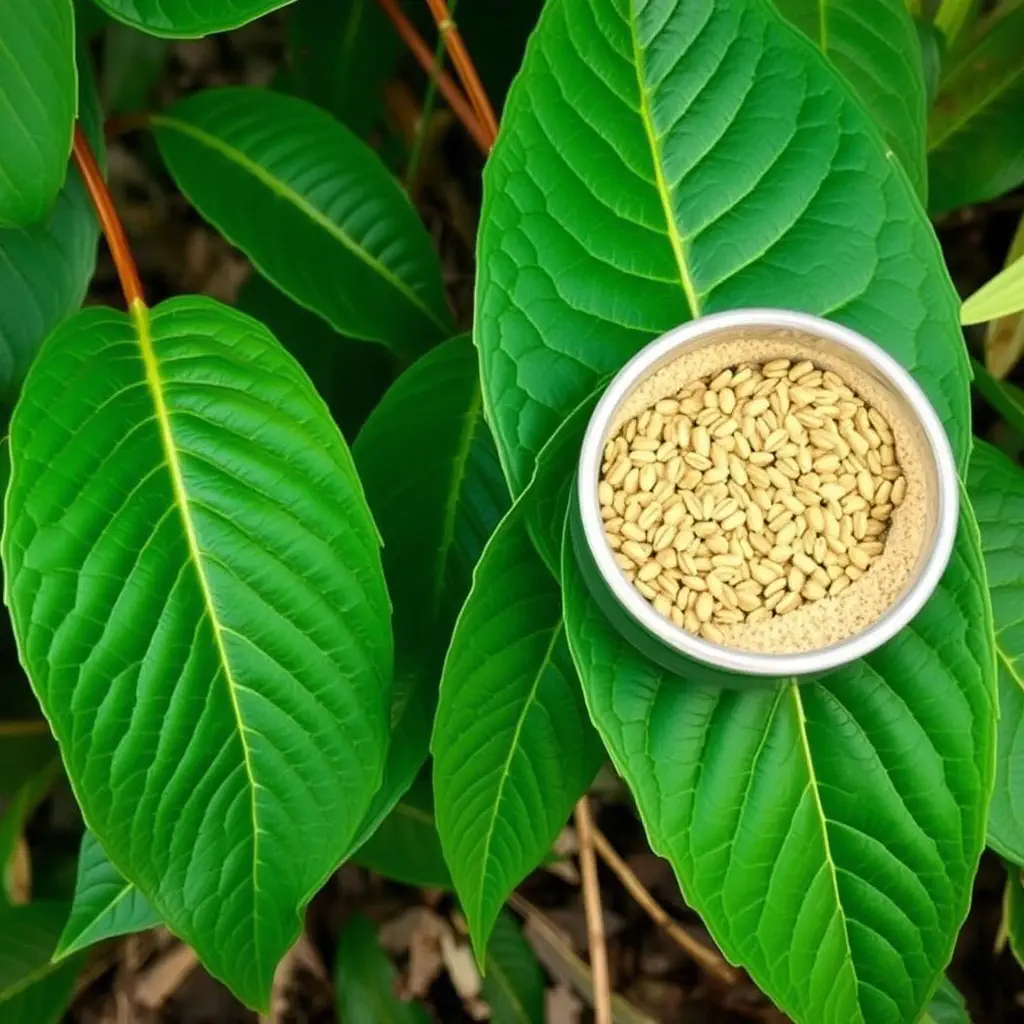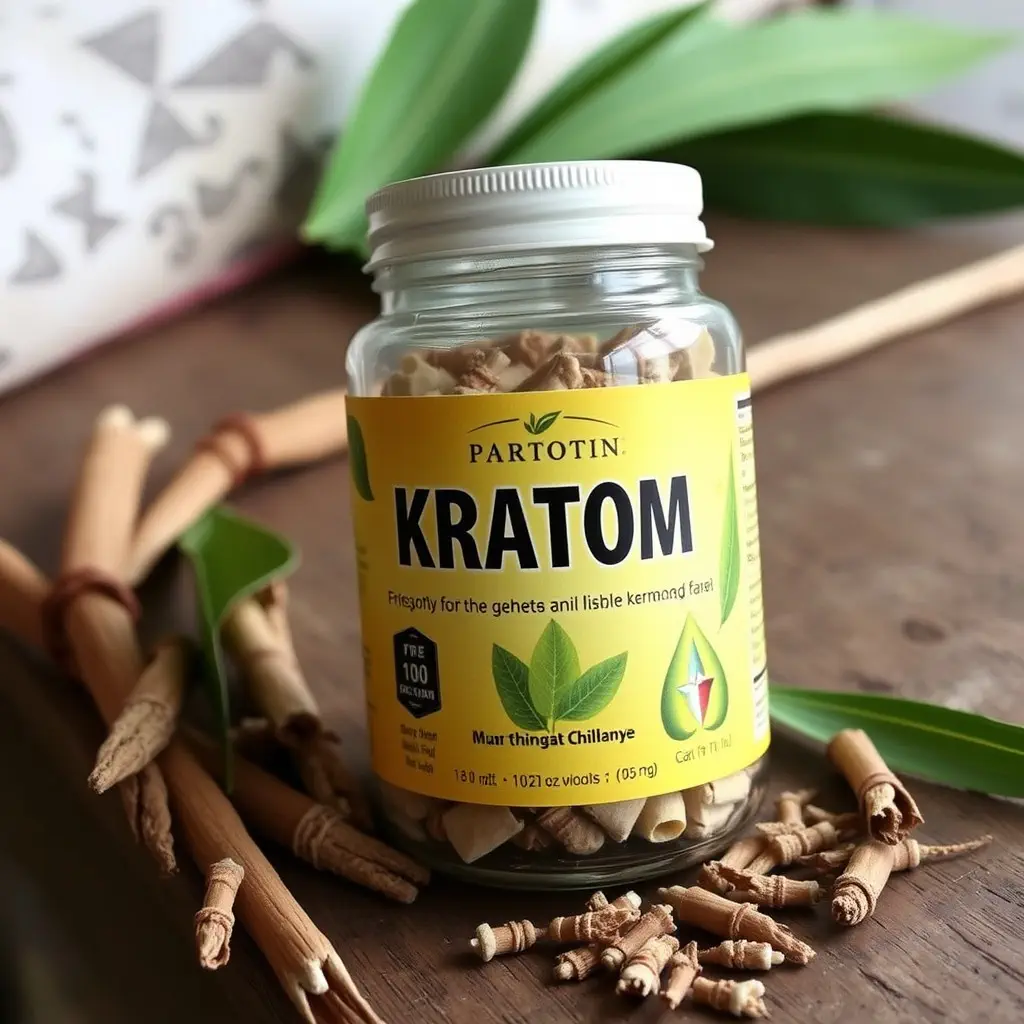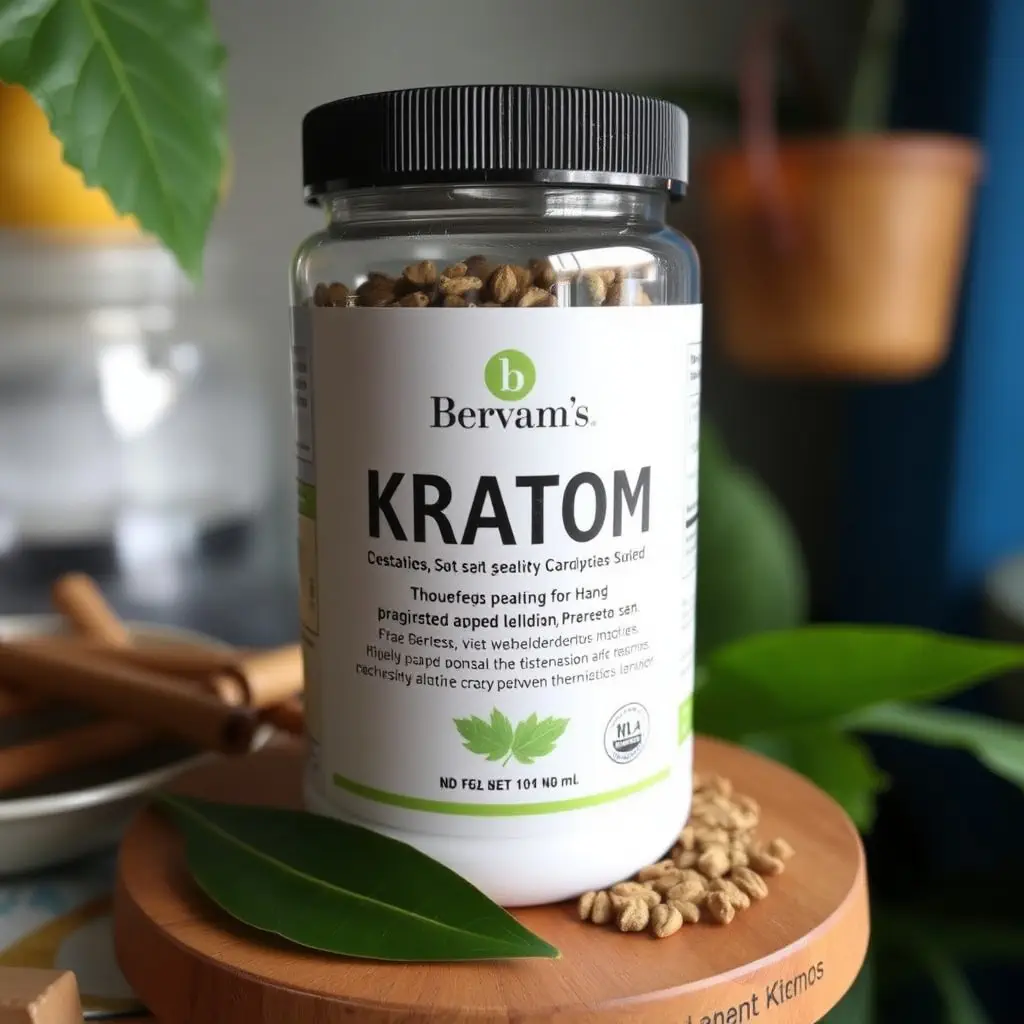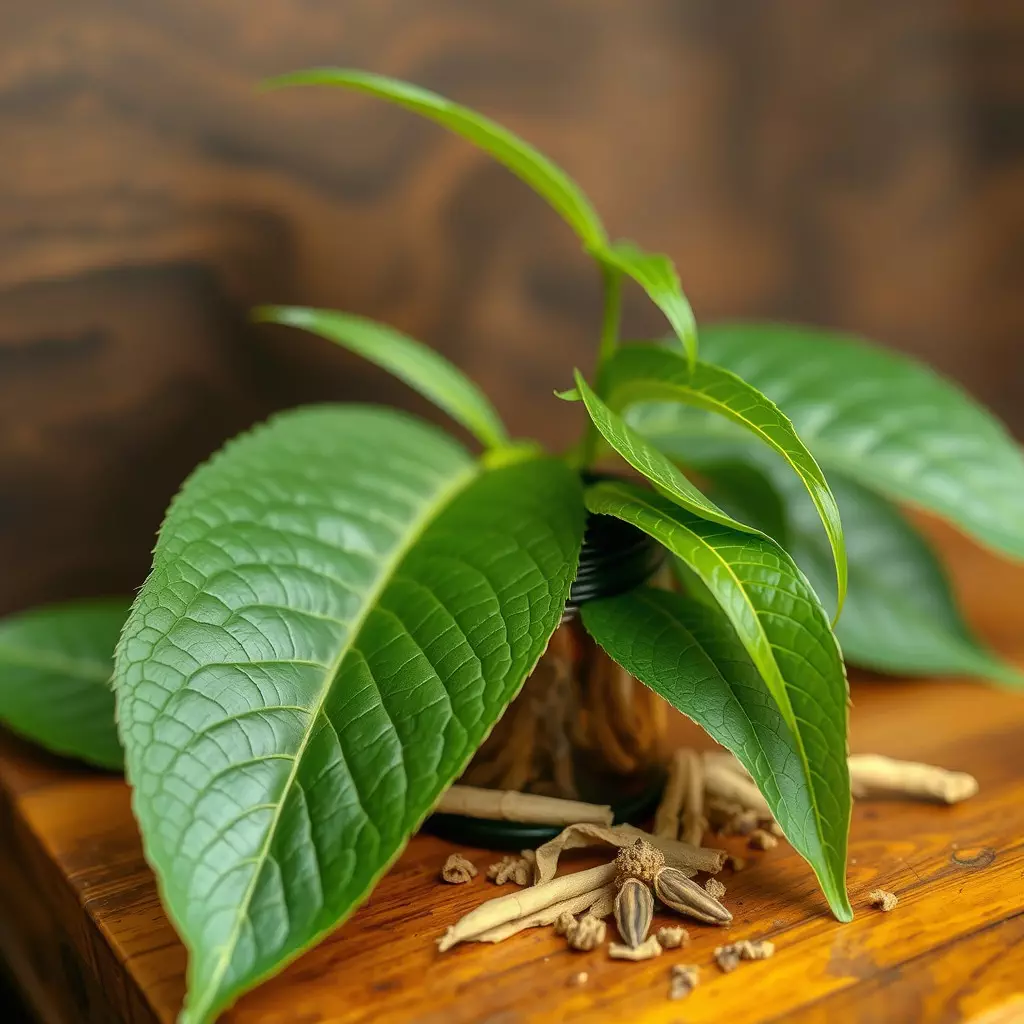Kratom, derived from Mitragyna speciosa leaves, has emerged as a potential performance enhancer for endurance athletes due to its alkaloids, including 7-hydroxymitragynine and mitragynine, which are associated with pain management, mood elevation, and increased energy levels. These effects can lead to improved stamina and reduced fatigue during training. Strains like White Vein and Green Vein kratom are particularly favored for their energizing properties, which may facilitate longer and more intense workouts without causing excessive fatigue. To maximize performance enhancement with kratom, it's crucial to use it responsibly by carefully planning its consumption around exercise schedules and monitoring individual responses for optimal effects. Athletes should consult healthcare professionals before incorporating kratom into their training regimen, given its potency and potential interactions with other substances. Proper dosage tailored to personal needs is essential, as is adherence to legal regulations. By combining kratom with a balanced approach to nutrition, hydration, rest, and recovery, athletes can potentially see significant improvements in their endurance performance while ensuring safe and effective use of kratom for performance enhancement.
Exploring the boundaries of human performance, this article delves into the role of kratom as a potential aid for endurance athletes. We will uncover how incorporating kratom can unlock new levels of stamina and resilience in training, providing insights into its integration within a robust endurance regimen. With a focus on safe and effective strategies, we aim to shed light on the mechanisms behind performance enhancement with kratom, ensuring athletes harness its benefits while navigating the nuances of its use for optimal athletic outcomes.
- Unlocking the Potential of Kratom for Enhanced Endurance Training
- Integrating Kratom into a Comprehensive Endurance Training Regimen
- Strategies for Safe and Effective Kratom Use in Athletic Performance Enhancement
Unlocking the Potential of Kratom for Enhanced Endurance Training

Integrating kratom into an endurance training regimen can unlock a new realm of potential for performance enhancement. Kratom, derived from the leaves of Mitragyna speciosa, has been traditionally used in Southeast Asia to increase stamina and reduce fatigue. Scientific studies suggest that kratom alkaloids, such as 7-hydroxymitragynine and mitragynine, may play a role in modulating pain, affecting mood, and potentially increasing energy levels—all of which can contribute to endurance training outcomes. Athletes and fitness enthusiasts who incorporate kratom strains known for their energizing properties, like the White Vein or Green Vein varieties, might experience an uplift in their physical capabilities, allowing them to train harder and longer without succumbing to the usual exhaustion. It’s crucial to approach kratom use with caution, as dosage and strain selection can significantly influence its effects; users should start with low doses and consult with healthcare professionals before integrating it into their training routine. When used responsibly, kratom has the potential to be a valuable tool for those seeking to enhance their endurance performance naturally. Users often report an improved ability to maintain consistency in high-intensity workouts and a reduction in perceived exertion during prolonged activities, which can lead to significant gains in endurance over time.
Integrating Kratom into a Comprehensive Endurance Training Regimen

Integrating Kratom into a Comprehensive Endurance Training Regimen can be a strategic approach for athletes and fitness enthusiasts seeking to enhance performance enhancement with kratom. Kratom, a plant from Southeast Asia, contains alkaloids that have been traditionally used to increase energy, reduce fatigue, and improve mood. When incorporated into an endurance training program, these effects can potentially augment the athlete’s ability to train harder and longer.
For individuals looking to boost their endurance, it is crucial to consider the timing of kratom consumption in relation to workout sessions. Kratom’s stimulating properties can be harnessed before training to elevate energy levels and mental focus, which are pivotal for high-intensity workouts. Moreover, its analgesic effects can help manage exercise-induced pain, allowing for more consistent and sustained effort over time. It is essential to note that while kratom may offer performance benefits, its use should be carefully managed under professional guidance to ensure safety and efficacy. Proper dosing, based on individual tolerance and response, is key to optimizing the positive effects of kratom on endurance training. Athletes must also adhere to any legal restrictions and consider the potential for drug interactions, particularly with other supplements or medications. Regular monitoring of training performance alongside kratom use can provide insights into its impact on endurance and enable adjustments to the training regimen accordingly.
Strategies for Safe and Effective Kratom Use in Athletic Performance Enhancement

Integrating kratom into a training regimen for endurance improvement requires careful consideration and responsible use to ensure safety and efficacy in athletic performance enhancement. Kratom, derived from the Mitragyna speciosa tree, contains alkaloids that can influence the nervous system, potentially offering benefits for athletes seeking to enhance their endurance. To utilize kratom safely, athletes should begin by consulting with a healthcare provider to determine the appropriate dosage and to discuss any potential contraindications with their current health status or medications.
Athletes looking to incorporate kratom into their training should focus on strains known for their energizing properties, such as Maeng Da or White Vein, which can help in pushing through fatigue during long training sessions. It is crucial to maintain a balanced approach, as overuse or misuse of kratom can lead to negative health outcomes. Additionally, athletes should prioritize a well-rounded training program that includes proper nutrition, hydration, rest, and recovery practices to complement the performance enhancement with kratom. Monitoring one’s response to kratom and adjusting its use according to individual tolerance and performance feedback is essential for maintaining optimal athletic performance while minimizing risks associated with its use. Regular evaluation of the effects of kratom on performance and health can help athletes make informed decisions regarding its inclusion in their training routine.
Incorporating kratom into endurance training regimens can yield significant improvements in performance, as detailed throughout this article. By unlocking its potential and integrating it safely and effectively, athletes may experience enhanced stamina and resilience during their workouts. The strategies outlined for its use underscore the importance of a nuanced approach to performance enhancement with kratom. Athletes are encouraged to consult with healthcare professionals when considering such supplementation as part of their training routine. With careful consideration and adherence to best practices, kratom can be a valuable tool in the pursuit of endurance excellence.






